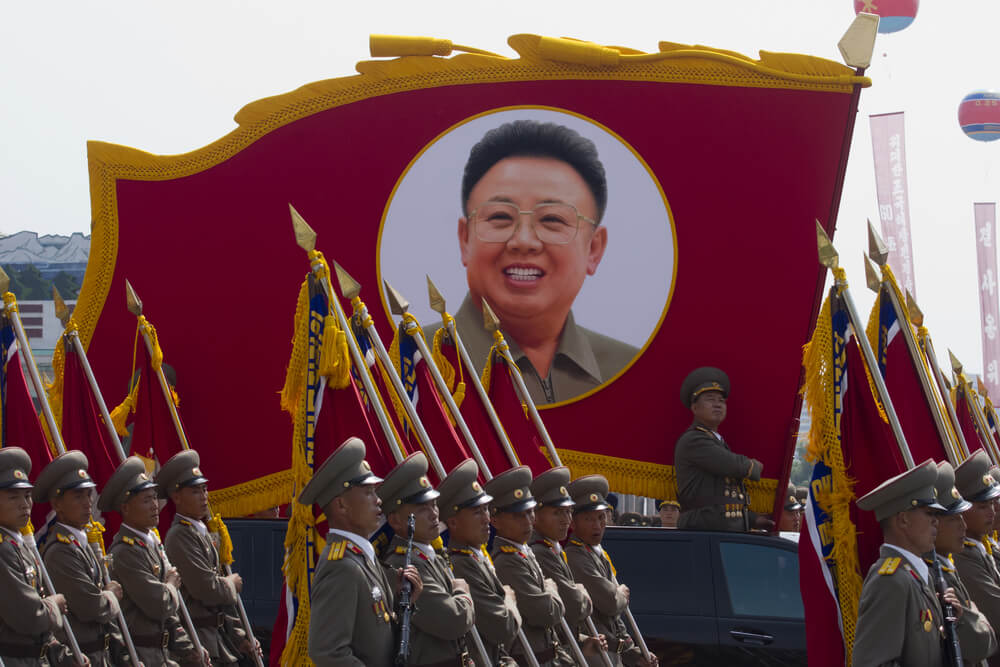Vladimir Putin's pompous visit to North Korea was the culmination of unprecedentedly intensive cooperation between the two most isolated countries in the world. Weapons, modern military equipment, and expert support in the development of military potential are the backbone of this cooperation.
It reached its peak last year when then-Defence Minister Sergei Shoigu became the first foreign politician to visit Pyongyang after a three-year lockdown.
The reason for his arrival—the procurement of artillery ammunition from North Korea, which was urgently needed by the depleted supplies of the Russian invasion forces in Ukraine—has since been the catalyst for the two countries' rapprochement towards an alliance of the highest order.
Putin and North Korean leader Kim Jong Un signed a comprehensive agreement on strategic cooperation in Pyongyang, which includes a commitment to mutual support in the event of a military attack on one of the signatory states.
A full-capacity alliance
At the ceremony, the North Korean leader described it as a "document of a peaceful and defensive nature," but it has been unclear what the specific mutual security obligations will be or in what circumstances they will take effect.
Despite this, it is evident that this agreement formalises the de facto military alliance between Russia and North Korea, which has existed for years, particularly since the start of Russian aggression against Ukraine.
The commitment to mutual support in the event of a conflict represents a new level of connection between Russia and North Korea
Moreover, the commitment to mutual support in the event of a conflict represents a new level of connection between Russia and North Korea, in a direction that raises concerns about the security situation in Northeast Asia.
Putin's speech in Pyongyang was tough on the USA and its Asian allies, which was in line with the host's expectations and sentiment.
He criticised the "frequent" military exercises in the region, led by the US and involving South Korea and Japan, saying they were "deeply hostile with regard to the DPRK."
The West as a first-class opponent
Given the isolation of both leaders and their governments, we may never know the signed agreement's contents.
However, the terms of its signing and the rhetoric of Putin and Kim clearly show that it is a military alliance that labels the US and its allies in the Far East as first-class adversaries and the only possible target of their military actions.
In this respect, the agreement between Moscow and Pyongyang represents a disruption of the security balance in the otherwise tense region of the Korean Peninsula and Northeast Asia.
The previous military cooperation between the two isolated states was disruptive enough in itself, particularly in connection with the Russian invasion of Ukraine.
The agreement to supply Russia with North Korean ammunition also resulted in an increased flow of expertise and material for Pyongyang's missile arsenal and other combat systems in the opposite direction.
 The agreement between Moscow and Pyongyang represents a disruption of the security balance in the otherwise tense region of the Korean Peninsula and Northeast Asia
The agreement between Moscow and Pyongyang represents a disruption of the security balance in the otherwise tense region of the Korean Peninsula and Northeast Asia
It is precisely this direction of cooperation that raises the most concern. Pyongyang's strict sanctions prevent it from developing sophisticated combat systems, thereby making Russia, also isolated since its attack on Ukraine, a powerful source of military supplies.
The military alliance of two autocratic and isolated regimes is particularly threatening because of its unpredictability.
The USA has assessed the new agreements raising the possibility of increased Russian military involvement in the Korean Peninsula region as a bigger risk than the supply of massive quantities of North Korean ammunition to Russia.
“What we are concerned about is the deepening relationship between these two countries not just because of the impacts it’s going to have on the Ukrainian people, because we know North Korean ballistic missiles are still being used to hit Ukrainian targets, but because there could be some reciprocity here that could affect security on the Korean Peninsula,” said National Security Council spokesman John Kirby.
Will Beijing allow an escalation?
The summit between Putin and Kim Jong Un is not only a political but also a security policy response to the strengthening of the partnership between the USA, Japan, and South Korea. With their agreements, Russia and North Korea want to form a counterweight to the US-led alliance in East Asia.
In this way, however, they are deeply encroaching on China's interests in the region and its claim to be a first-class regional security factor. Although it maintains close relations with both Russia and Pyongyang, China cannot sympathise with a security arrangement in which it is not directly involved.
While Russia and North Korea care little about the West's reactions to their foray into military cooperation, China is highly suspicious of any imbalance of military power in its backyard
Its security calculation regarding the situation on the Korean Peninsula differs from that of its isolated partners. While Russia and North Korea care little about the West's reactions to their foray into military cooperation, China is highly suspicious of any imbalance of military power in its backyard.
Even if Beijing was aware of the Russian-North Korean agreement, it is unlikely that China was particularly enthusiastic about it. It is therefore in the interests of the Western allies to exert influence on Pyongyang and Moscow via Beijing so that their expanded alliance in the turbulent region of North-East Asia does not become radicalised.